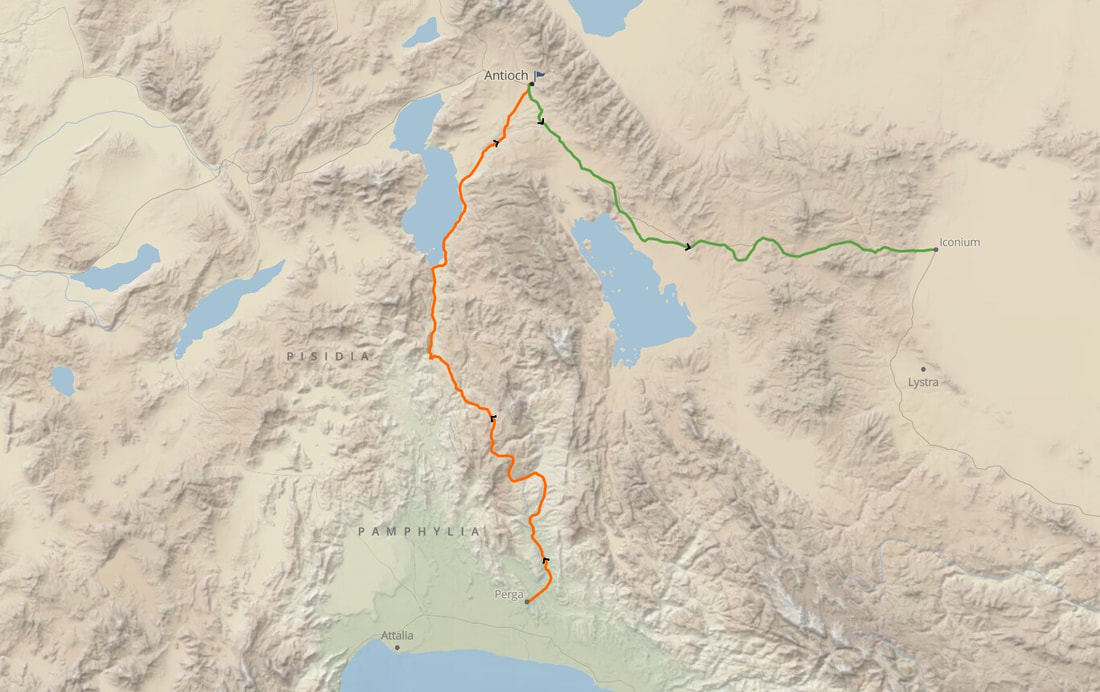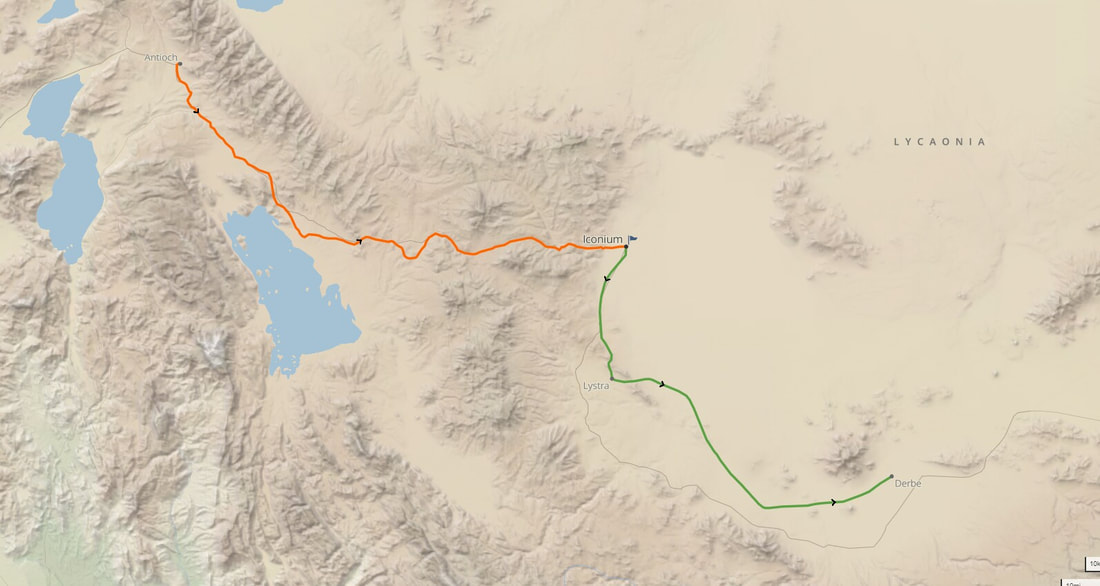| Teacher: Rusty Kennedy Series: 1 Corinthians (Acts) |
Rusty's Notes | |
- 1) The division in the church based upon who was better (Paul, Apollos, etc.) – Answer was message is greater than the messenger.
- 2) Worldly wisdom vs spiritual wisdom
- 3) Walking according to the flesh vs walking by the Spirit
- 4) True apostles vs false apostles
1 CORINTHIANS 4
1 A person should think of us in this way: as servants of Christ and managers of the mysteries of God. 2 In this regard, it is required that managers be found faithful. 3 It is of little importance to me that I should be judged by you or by any human court. In fact, I don’t even judge myself. 4 For I am not conscious of anything against myself, but I am not justified by this. It is the Lord who judges me.
- The point is, he is devaluing that which is merely human judgment.
- And it’s in that light that he says, “I don’t even judge myself,” which hardly means that he doesn’t periodically take stock of what he’s doing and how he’s doing it, but in the sense of the ultimate Judge, the only one who can declare things to be as they truly are.
- He realizes that his conscience could be clear, and yet that would not necessarily acquit him in God’s eyes.
- “A clear conscience was a sign of a faulty memory.”
- And if we were honest, we would all say that that’s true, unless we’re speaking of the conscience that is clear because we know we’ve been forgiven for our sins by Christ.[1]
- Our task is not to do God’s rewarding and condemning work for Him;
- Of course we are to judge others in the sense of assessing but not in the sense of the ultimate judgment reserved for God.
- We can leave the master to do His job. We can be faithful stewards.[2]
THE APOSTLES’ EXAMPLE OF HUMILITY
6 Now, brothers and sisters, I have applied these things to myself and Apollos for your benefit, so that you may learn from us the meaning of the saying: “Nothing beyond what is written.”
- If anyone can understand this popular proverb that Paul is quoting, it would be Paul himself.
- The man who not only knew God’s law but he also knew the oral law.
- But in light of the context, Paul is speaking about add-ons to the Gospel message.
- Jesus alone
- I have a seminary degree… that doesn’t make me any better than…
- Don’t you realize that everything you have was given to you by God?
PAUL’S FATHERLY CARE
14 I’m not writing this to shame you, but to warn you as my dear children. 15 For you may have countless instructors in Christ, but you don’t have many fathers. For I became your father in Christ Jesus through the gospel.
- In a culture of honor and shame, the perception that Paul would have been intentionally shaming the Corinthians would have been a very serious charge; though, because of his special relationship with them, he had the right.[3]
- Any believer, after a number of years and life experiences and growth in Christianity, should be able to say to a young Christian or someone exploring the possibility of faith, “You want to see how a Jesus-follower lives? Watch me. Better yet, “Come, stay with me.
- Watch me 24/7, not because I am perfect in my behavior—but perfect in my Spirit.”
- Paul’s made that point powerfully. “Watch me repent.
- Watch me apologize when I have to and seek forgiveness and pick up the pieces and move on.”[4]
- The power of the Kingdom of God is love and a spirit of gentleness.
- It is the love and gentleness that earns you the audience to hear the truth.
- Paul has earned the right to speak truth and judgment to the church at Corinth.
- Ephesians 4 talks about speaking the truth in love, and historically, Christians have not always done well with both halves of that mandate.
- Perhaps they have spoken the truth but not done so lovingly, or perhaps they have been very loving but recoiled from speaking the entire truth.[6]
IMMORAL CHURCH MEMBERS
1 CORINTHIANS 5
- These are difficult topics.
- These are topics that would’ve been very difficult for Paul to address in a Graeco-Roman world, where there were very few sexual taboos.
- They’re very difficult issues for us to address today as well, and the most that we can hope to do is to be faithful to Scripture as best as we understand it, recognizing that, on many controversial topics, other well-intentioned and godly believers will take different approaches.[7]
- The specific case at hand is a kind of incestuous behavior.
- The fact that Paul speaks of a man having his father’s wife suggests not his biological mother but probably a stepmother, and because second wives—even at times, first wives but certainly second wives—in the ancient Graeco-Roman world were often considerably younger than their husbands, it’s very possible that this is a woman who is closer in age to the father’s son than to the father himself, which could explain a sexual attraction between the two.[8]
- “Not even tolerated”
- What does our society tolerate?
- The Corinthian church has not reacted, not reacted properly.
- In fact, they have reacted profoundly improperly by being proud of the fact that this is going on.
- By what contorted logic could they see this as a matter of pride?
- “Love is love.” = I can do whatever because it is love. (agape, philo, eros, etc.)
- TV – Lucy & Ricky, Soap, Cuties…
- What do we tolerate?
- And probably, it has to do with an issue that will come to the fore in chapter 6—namely, their misunderstanding of freedom in Christ.
- Paul will quote what appears to be a kind of a Corinthian slogan in 6:12 when he says, “All things are lawful.”
- And there is a sense, in the age that is not now under the law the way the old covenant or Mosaic period was, that that’s true, but it needs qualification as 6:12 also does: “Not all things are expedient.… Not all things build others up.”
- Clearly, this is an example that is far from a healthy exercise of any kind of Christian freedom.[9]
- Ancient communities were so tightly knit that formal ostracism of a disfellowshipping or even excommunicating nature was often such a shock to the system that it caused people to repent when nothing else did the trick.[10]
- Isolation
- If it becomes “accepted behavior” it then comes with an agenda.
- The agenda will infect the whole bunch.
- One agenda here… among perfect believers who sometimes display imperfect behavior.
- Jesus
- So then the question is asked, if we all still sin, how can we “turn one over to Satan”?
- 1 Corinthians 4:5 - So don’t judge anything prematurely, before the Lord comes, who will both bring to light what is hidden in darkness and reveal the intentions of the hearts.
- It is a matter of the heart.
- I personally believe the difference is repentance.
- Is Jesus the agenda or is your sexuality?
- Is Jesus the agenda or is self-indulgence?
- Is Jesus the agenda or is greed?
CHURCH DISCIPLINE
9 I wrote to you in a letter not to associate with sexually immoral people.
- It’s here also that we learn for the first time that there was a previous letter that Paul had sent to the Corinthian church.
- We don’t know its contents beyond what is disclosed in this paragraph, and it may have been a very short letter dealing only with this topic, and because it becomes clear that it was misunderstood and corrected in what we call 1 Corinthians, it may have seemed unnecessary to anyone to save that original letter.[11]
- The fact that he uses the language that he does in this context of people who are certain things, as opposed to just specific actions, suggests that he is not talking about a one-time offense.
- He is not even talking about periodic lapses, possibly over a lifetime, but a prolonged and characteristic and persistent and unrepentant celebration of an overall lifestyle that involves the various sins mentioned here.
- This, he says, is utterly inconsistent with any profession of Christian faith.[12]
- Even when Paul commands disfellowshipping, he is not referring—as the church sadly has sometimes interpreted it—to a total breaking off of contact with a given individual.
- That rarely is rehabilitative, and it rarely was in the ancient world.[13]
- I have friends who practice worldly behaviors and I am still able to say, “I love you” to them.
- I can still eat a meal with them.
- I still try to have an impact on their lives even though I don’t agree with their practices.
- How would they ever hear about the goodness of the Gospel if we totally isolate them?
- I have friends who practice worldly behaviors and I am still able to say, “I love you” to them.
- I can still eat a meal with them.
- I still try to have an impact on their lives even though I don’t agree with their practices.
- How would they ever hear about the goodness of the Gospel if we totally isolate them?
- Deuteronomy 17:7 – You must purge the evil from you.
- Quoting the story of Sarah with her slave Hagar and her son by Abraham, Ishmael, when they were sent out into the wilderness, Paul speaks of expelling the wicked from among you.
- These are difficult words to apply.
- Complete disassociation usually fails utterly.
- The removal of an offender from a leadership role, even as we tell them we want to be involved in your restoration, is probably the best that we can hope for, in hopes that they will sense our love as well as the seriousness of the situation and be willing to exhibit profound sorrow and a change of behavior over time.[15]
- If we see this simply as a matter of a way to be rid of a troubling person or a troubling issue, we’ve missed the point.
- The point is God’s care for individuals, His concern for restoration.
- Certain issues have to be addressed but in ways that, from the very outset, make it clear that those addressing it want the best for the person who’s being confronted and have thought through a process of restoration, of repentance, of reinstatement into fellowship, perhaps, if appropriate—sometimes it may be, sometimes not—for those in ministry, a restoration to ministry, and maybe that will be in the same congregation;
- Maybe it will be in a different one.
- These aren’t absolutes—one size fits all.
- So much depends on the issue on who has already been affected and how the offending party responds.[16]
- We mourn the sin
- We judge the sin
- We remove the sin
- We love the person.
[1] Blomberg, C. L. (2017). NT334 Book Study: Paul’s First Letter to the Corinthians. Bellingham, WA: Lexham Press.
[2] Blomberg, C. L. (2017). NT334 Book Study: Paul’s First Letter to the Corinthians. Bellingham, WA: Lexham Press.
[3] Blomberg, C. L. (2017). NT334 Book Study: Paul’s First Letter to the Corinthians. Bellingham, WA: Lexham Press.
[4] Blomberg, C. L. (2017). NT334 Book Study: Paul’s First Letter to the Corinthians. Bellingham, WA: Lexham Press.
[5] Christian Standard Bible. (2020). (1 Co 4:1–21). Nashville, TN: Holman Bible Publishers.
[6] Blomberg, C. L. (2017). NT334 Book Study: Paul’s First Letter to the Corinthians. Bellingham, WA: Lexham Press.
[7] Blomberg, C. L. (2017). NT334 Book Study: Paul’s First Letter to the Corinthians. Bellingham, WA: Lexham Press.
[8] Blomberg, C. L. (2017). NT334 Book Study: Paul’s First Letter to the Corinthians. Bellingham, WA: Lexham Press.
[9] Blomberg, C. L. (2017). NT334 Book Study: Paul’s First Letter to the Corinthians. Bellingham, WA: Lexham Press.
[10] Blomberg, C. L. (2017). NT334 Book Study: Paul’s First Letter to the Corinthians. Bellingham, WA: Lexham Press.
[11] Blomberg, C. L. (2017). NT334 Book Study: Paul’s First Letter to the Corinthians. Bellingham, WA: Lexham Press.
[12] Blomberg, C. L. (2017). NT334 Book Study: Paul’s First Letter to the Corinthians. Bellingham, WA: Lexham Press.
[13] Blomberg, C. L. (2017). NT334 Book Study: Paul’s First Letter to the Corinthians. Bellingham, WA: Lexham Press.
[14] Christian Standard Bible. (2020). (1 Co 5:1–13). Nashville, TN: Holman Bible Publishers.
[15] Blomberg, C. L. (2017). NT334 Book Study: Paul’s First Letter to the Corinthians. Bellingham, WA: Lexham Press.
[16] Blomberg, C. L. (2017). NT334 Book Study: Paul’s First Letter to the Corinthians. Bellingham, WA: Lexham Press.





 RSS Feed
RSS Feed